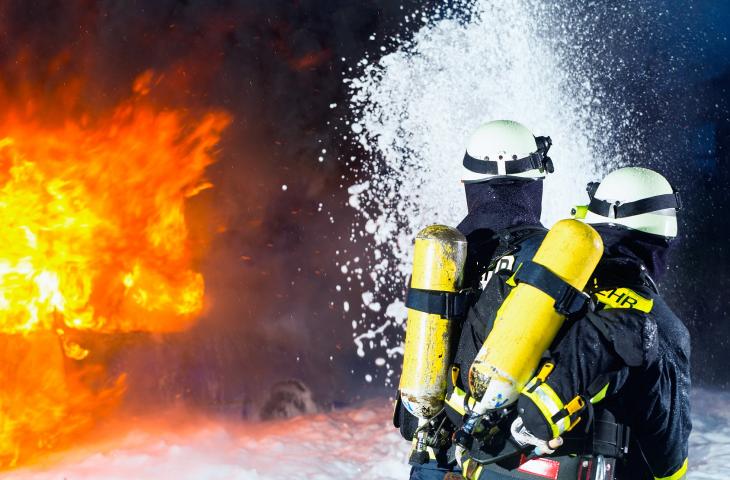MILAN – We are so used to seeing firemen pouring water on fires and cannot imagine how they could suffer from water deficiency while on duty. Moreover, with the summer just around the corner, when the risk of fire increases significantly all over the world, one study by the University of Cumbria, in collaboration with Cumbria Fire and Rescue Service, has highlighted the importance of proper hydration for the performance of such an important and sensitive professional sector.
Research
Many studies have now documented that a reduction of just 2% of body mass due to dehydration will negatively impact physiological and metabolic functions. In fire officers, this risk is even more accentuated. According to discoveries by the team from the Department of Sports Science at the English university, with the assistance of fire brigades from the counties of Kendal and Penrith, during a fire-prevention intervention, respiration alone will bring about a reduction of 1.2 % of body mass in 21 minutes. As a point of comparison, rugby players lose between 1.3% and 1.5% of their body mass through perspiration in an 80 minute match.
Testimonies
Several fire brigades involved in the study emphasised the importance of hydration for their profession. “The work carried out with the University is interesting –affirmed Tom – Now we are more aware of the effects of dehydration on the human body, we have started to carry more water with us in the cabin to encourage personnel to consume fluids, even when we are actually on the way to an intervention”. The research project was supervised by Theo Bampouras, director of the Human Performance Laboratory at the University of Cumbria, who commented: “This collaboration is providing information which could improve the future performance and safety of fire officers”.











